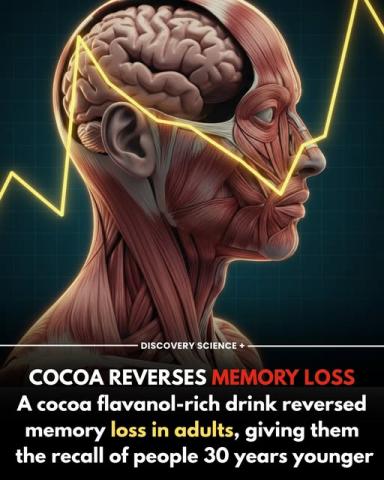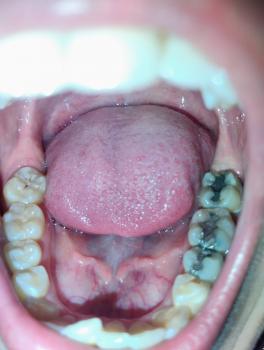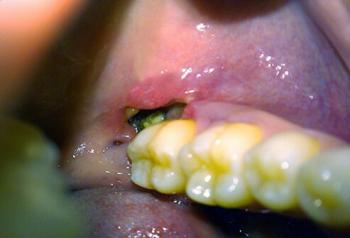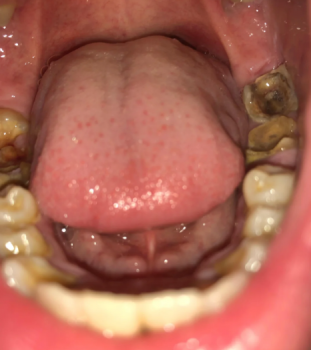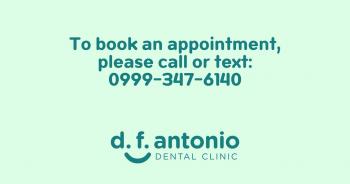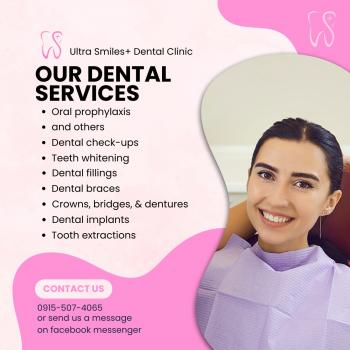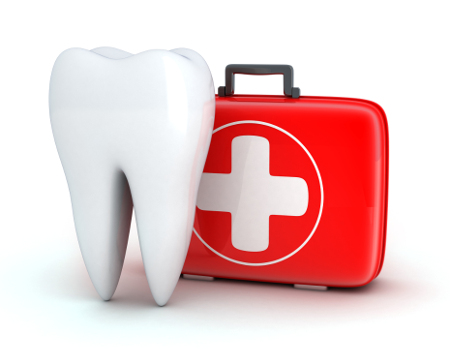Where Bright Smiles Begin.
From Paradise to Decay: Why Your Coke Habit is Hurting Your Smile and Your Mind
Beyond the Smile: Your Favorite Drink is Hurting More Than Just Your Teeth
Here in the Philippines, a chilled bottle of Coca-Cola is more than just a beverage. It’s a symbol of hospitality, a companion to merienda, and a quick source of sweet relief from the tropical heat. For many, it’s a "paradise in a bottle." But this paradise has a dark side, one that dentists see every single day: a devastating trail of tooth decay, sugar addiction, and—as emerging science suggests—potential harm to your brain health.
We’ve long known the dental dangers. The sugar in a single bottle of soda feeds the bad bacteria in your mouth, which then produce acids that aggressively erode your tooth enamel. This leads to cavities, sensitivity, and, eventually, tooth decay. It’s a direct and well-established relationship.
But what if the damage wasn't just confined to your smile?
A Sip of Hope: The Brain-Boosting Power of Real Cocoa
A groundbreaking study from Columbia University Medical Center offers a fascinating contrast. Researchers found that a daily drink rich in cocoa flavanols could actually reverse age-related memory loss in healthy older adults.
The key takeaways are revolutionary:
-
Targeted Action: The flavanols specifically improved function in the dentate gyrus, a part of the brain crucial for memory that typically declines with age.
-
Proven Results: After three months, participants not only showed better brain activity but also demonstrated memory performance akin to someone decades younger.
-
The Critical Caveat: This wasn't your average grocery-store chocolate bar. The study used a specially formulated drink that preserved the natural flavanols, which are typically destroyed and replaced with sugar and fat in regular chocolate processing.
This presents a powerful dichotomy: the plant (cacao) itself holds medicinal potential for our brains, but the processed, sugar-laden product we commonly consume does the opposite.
The Filipino Paradox: A Nation's Love Affair with Soda
So, how does this relate to our national fondness for Coke?
The connection is in the sugar. While the Columbia study highlights the benefits of pure cocoa flavanols, it explicitly warns against the high-sugar, low-flavanol content of common chocolate products. This warning applies tenfold to soft drinks like Coca-Cola, which contain zero beneficial flavanols and are essentially liquid sugar.
How many Filipinos are "addicted" to drinking Coke?
While clinical addiction is complex, the consumption patterns are staggering and point toward a strong dependency.
-
Soaring Consumption: The Philippines is one of the top consumers of carbonated soft drinks in Southeast Asia. A 2019 study by the non-profit group Fit for PH's Future found that the average Filipino consumes the equivalent of 16.5 teaspoons of sugar per day, with sugar-sweetened beverages being a primary contributor.
-
Accessibility and Affordability: Coke is often cheaper and more accessible than bottled water or milk in many sari-sari stores across the archipelago.
-
Cultural Entrenchment: It’s woven into the social fabric—"Coke muna" is a common refrain. This habitual consumption, driven by sugar's dopamine-releasing effects, creates a cycle of craving that mirrors addictive behavior.
The "paradise" is a sugar trap. We are drinking a product that not only decays our teeth but also floods our bodies with empty calories, contributing to obesity, diabetes, and as we now understand, potentially depriving our brains of the very nutrients that could protect them.
Your Action Plan: From Harmful Habit to Healthy Smile & Mind
This new research isn't a reason to feel guilty; it's a powerful reason to make a change. Here is your practical advice:
-
Reframe Your Drink: Start by seeing sugary drinks for what they are—an occasional treat, not a daily staple. Challenge yourself to replace one soda a day with water or unsweetened tea.
-
Crave the Right Chocolate: If you want the brain benefits of cocoa, you must seek out high-quality, dark chocolate with a cocoa content of 70% or higher. Even then, consume it in moderation (a small square, not a whole bar).
-
Embrace True Flavanol Sources: Get your flavanols from other whole food sources that don't wreck your teeth, such as:
-
Green Tea
-
Berries (blueberries, strawberries)
-
Apples
-
Citrus fruits
-
Onions
-
Kale
-
-
Master Post-Indulgence Dental Care: If you do indulge in a soda, don't brush your teeth immediately afterward. The acid softens your enamel, and brushing can cause erosion. Instead:
-
Rinse your mouth thoroughly with water.
-
Wait at least 30-60 minutes before brushing.
-
-
Become a Label Detective: Look at the sugar content on beverage labels. The World Health Organization recommends less than 6 teaspoons (25 grams) of added sugar per day. A single 330ml can of Coke has about 9 teaspoons—exceeding your entire daily limit in one drink.
Final Thought
The Columbia University study opens an exciting door to using food as medicine for our brains. But it also draws a stark line in the sand: there is a world of difference between the healing compounds found in nature and the processed, sugary products sold to us.
Your "paradise in a bottle" is costing you more than you know—it's costing you your dental health and may be undermining your cognitive future. Choose a different kind of paradise. Choose one that gives you a healthy smile and a sharp mind for years to come.
healthy food:

